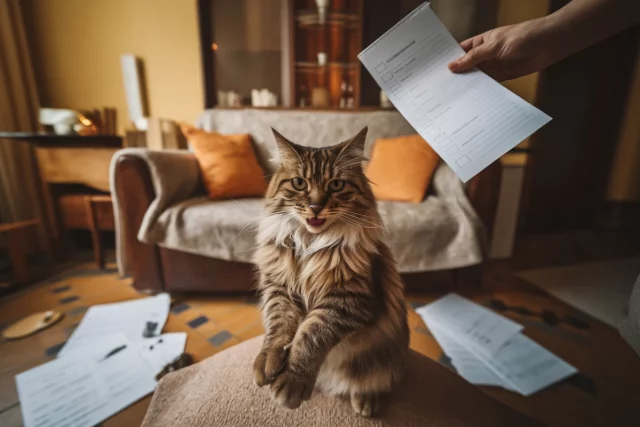In recent years, discussions among psychologists about feline behavior have led to a groundbreaking idea: adapting human psychopathy tests for our feline friends.
Understanding Feline Psychopathy
Before diving into this intriguing topic, it’s essential to clarify what psychopathy truly means. Contrary to popular belief, a psychopath isn’t necessarily a criminal. Instead, it’s a label for personality traits found in impulsive individuals who lack empathy and may engage in manipulation. Despite these traits, psychopaths can often appear charming. It’s crucial to understand that there are varying levels of psychopathy; it is not just black and white.
The Evolutionary Advantage of Psychopathic Traits
Interestingly, these traits might have provided evolutionary benefits for cats, helping them compete for territory or mates. Therefore, discovering psychopathic tendencies in your cat shouldn’t lead to abandonment but rather an opportunity to adjust your environment for better understanding.
Developing the Feline Psychopathy Test
To create this unique test, researchers surveyed over 2,000 cat owners about their pets’ behaviors. They adapted a human psychopathy test by considering responses from these owners to assess feline psychopathy accurately.
- The relationship between cats and their human companions was heavily emphasized.
- Factors analyzed included behavior towards humans and other cats, need for constant stimulation, mood swings, exploratory tendencies, and rule adherence.
This information led to the creation of a 46-question test requiring responses ranging from “does not apply” to “extremely well describes my cat.” The results reveal something called CAT-Tri+, which indicates the level of psychopathy in your cat.
Interpreting Your Cat’s Test Results
The outcome won’t simply label your cat as a “psychopath” or a “saint.” Instead, it provides scores across five traits: boldness, disinhibition, meanness, hostility towards humans, and hostility towards other pets.
- Boldness
- Disinhibition
- Meanness
- Hostility towards humans
- Hostility towards other pets
The goal is not just labeling but understanding how these traits impact interactions between you and your cat.
Enhancing Your Relationship with Your Cat
Your cat’s score can guide how you stimulate them for happiness and better interaction:
- Cats showing disinhibition and hostility towards other pets often had improved relationships with their human friends.
- A higher degree of meanness and boldness might indicate more complex relationships that could benefit from training.
An accurate breakdown of these traits offers invaluable insights for trainers seeking to improve feline behavior.
A Call for Responsible Pet Ownership
The researchers hope widespread test participation will reduce pet abandonment rates. Often people abandon pets due to misunderstandings about their needs or behaviors. As we approach gift-giving seasons where pets become popular gifts adorned with ribbons around their necks, it’s vital to remember they are living beings deserving care and understanding. If you’re considering adopting one—remember each has its own personality requiring adaptation on both sides—consideration is key!


















